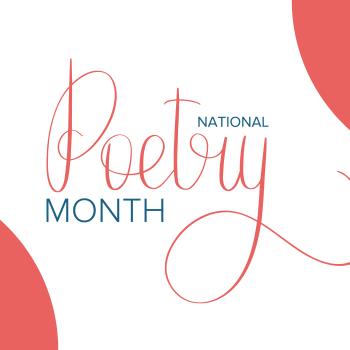April is National Poetry Month!

Event Description
Each year the month of April is set aside as National Poetry Month, a time to celebrate poets and their craft. Various events are held throughout the month by the Academy of American Poets and other poetry organizations.
Classroom Activity
In honor of National Poetry Month, introduce your students to a variety of poetic forms. Assign one or two students each day as "poet of the day" for the month of April. Then provide students with several models for creating different forms of poetry. You might use Theme Poems, Acrostic Poems, Diamante Poems, or other Poetry Types to do this.
Have each student select one form of poetry and write an original poem, which he or she can also illustrate. On their assigned days, have students read their poetry out loud to the class.
Websites
This website from the Academy of American Poets includes information on the history of National Poetry Month. Find out what happens during National Poetry Month on the frequently asked questions page.
The Poetry Learning Lab is a great source of knowledge, including a glossary of poetry terms, links to public domain poems, and inspiring essays on poetry from writers and educators.
Scholastic offers this poetry resource for grades 1–8. There are tips from authors of children's poetry, a teacher's guide, step-by-step workshops, and more.
The Favorite Poem Project, cosponsored by Boston College and the Library of Congress, is dedicated to celebrating, documenting, and encouraging poetry's role in Americans' lives. Watch or listen to citizens read poems they love.